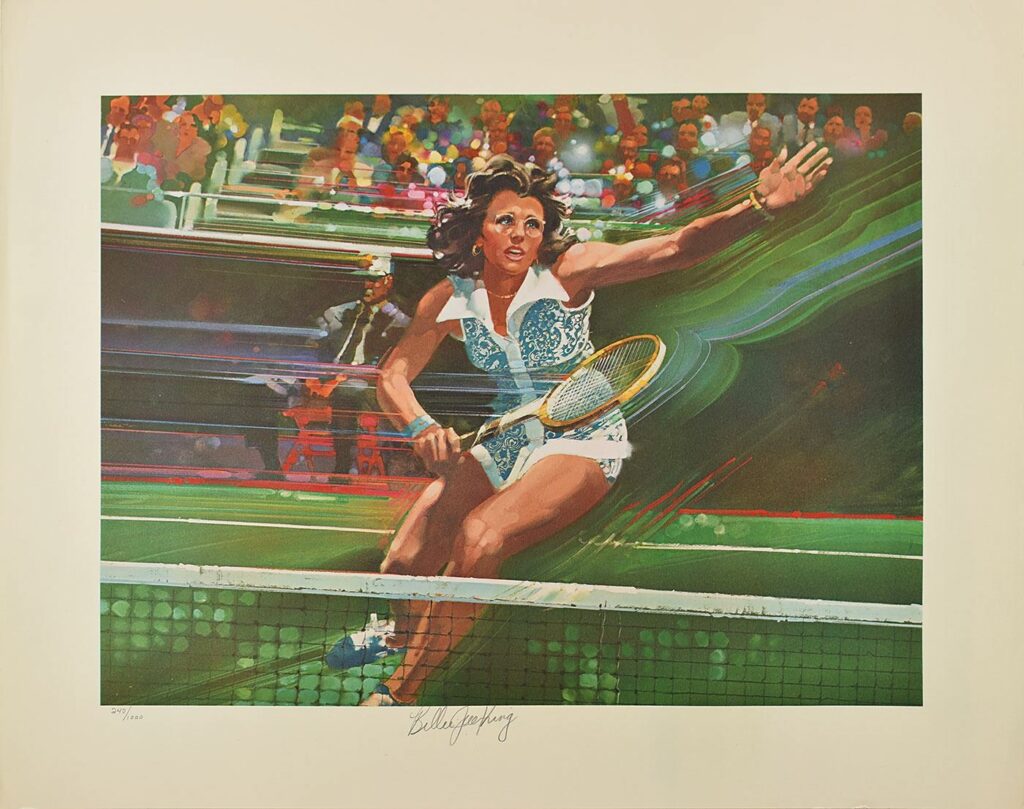
By Scoop Malinowski
Status: Hall of Fame tennis legend. Winner of 39 Grand Slam titles.
DOB: November 22, 1943 In: Long Beach, California
First Tennis Memory: “My. That’s one of my questions. When I’m coaching. That’s fantastic. Wow. That’s great. That’s really nice. That’s the first time somebody’s asked me that. Thanks. My first memory in tennis…well, I’ll tell you how I got in tennis. Susan Williams, in fifth grade, said, ‘Do you want to play tennis?’ And I said, ‘What’s tennis?’ So that’s the first time I ever heard the word. In fifth grade. And then I went out with her to hit. And I really liked it. It was fun. And then the second time I ever played was at the public parks pre-instruction group clinic. And that’s when I decided, at the end of that day, to be #1 in the world. I wanted to be #1 in the world.” “I’m sure I whiffed a lot with my friend Susan at her club, it was a country club. We played on the same softball team too and our coach said there’s free instruction here every Tuesday at Helton Park. So that’s where I decided to be #1, at Helton Park. I mean, I got really lucky, the stars got in alignment. Susan asked me to play. Long Beach, California. Good weather. Great public parks system. And an instructor, Clyde Walker, who I absolutely adored from day one. He was an older guy at the time, 61, and I just loved him. He made it fun. So he was really important. So I had really positive memories, even from the first time.”
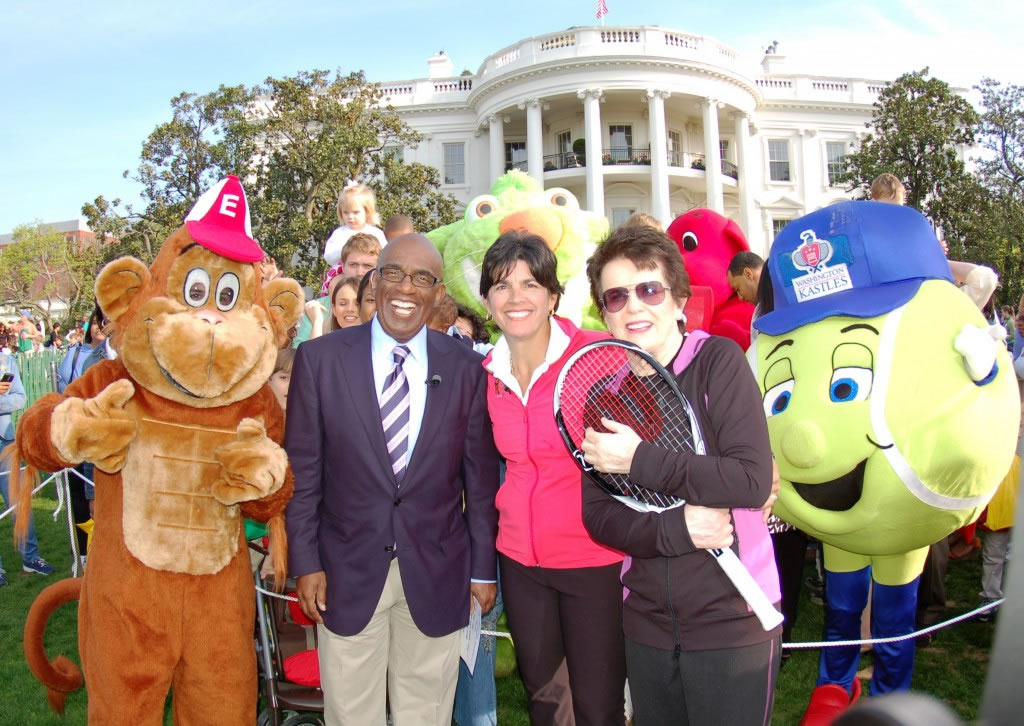
Tennis Inspirations: “Well, when I started to play, right from the beginning, I went to the library and checked out all three books – it’s not like amazon.com anymore, that’s for sure. In those days I read everything I could about the history. And so I was probably inspired by all of the champions that I read about as a child. Because I read about them right away. I mean, it was like the first week that I was hitting balls at the park. And I just loved it. I remember ‘Tennis With Doris Hart.’ And she was a great champion. So I read about her. And within that book she talked about all the womens champions of her era. So I learned all about that. And then ‘Use Your Head In Tennis’ by Bob Harmon was the first instruction book that I read. I love that book. Like, use your head, so that was good, the mental side. And there was a champions book that had champions from each U.S. Open. So I just read history all the time. I learned who had won Wimbledon, who had done that, which champions. And I was very fortunate to grow up in Southern California where we had so many champions. I ended up getting to meet Darlene Hard and she hit with me. I was just fortunate where I was born. Everybody in Southern California plays in the parks and were pretty casual. We go to clubs. Then the club people play at parks, we play at clubs. It wasn’t as elitist as it is probably in other parts of the country, so that was helpful.”
Greatest Sports Moment: “I never think about my tennis career. I think about what we, a group of us, tried to do off the court. There’s many moments…fighting for professional tennis in the 1960’s. And also the sad times were when the guys didn’t want us to be part of their association. And I really wanted us to be together. Because as amateurs, we were always together, the men and the women. So that was a very hurtful time, it was a very tough time. There were nine of us, called the Original Nine, that signed the contract with Gladys Heldman in Houston, Texas in 1970, at a tournament. And that really was the birth of women’s tennis. The way we know it today. So that was an important moment. So I have a lot of really great things. But I really don’t think about my tennis being the greatest. The stuff I can do off the court, that’s lasting. Performing is very temporary. So if I can connect the generations and have each generation, like we pass the baton, to know that they’re going to shape the future of the sport. That’s what makes me happy. When I connect the generations.” “So my greatest moments are continuing to this day. Because I don’t have to be a tennis player to keep helping the sport or helping equality. I think one of my greatest moments is when they named – ego-wise or personally or self probably satisfying – I think was when the USTA named the facility after me. August 28, 2006, when I was there and everybody was so kind to me. It was a great evening, it was like a culmination. You have to understand, we didn’t get along in the old days. And here they’re naming the facility…I mean, they’re almost suspending me at one point in my career. And years later they’re actually naming the whole facility after me. So I’m like, Whew.” “But you see, that’s what’s really important, is to always forgive and keep moving. Like, I never held any bitterness and obviously we have new management all the time and this is my generation of people. So they understood how the game changed in the 60’s, a lot of things changed in the 60’s. And sports are a microcosm of society. And our sport changed a lot then too. There was a lot of chaos and upheaval, just like the rest of the world. We really reflected that in our sport, by the big changes we had in the 60’s and the 70’s. I really like to continue to just improve our situation and have all the generations really work together and help each other.”
Most Painful Moment: “I think when the guys didn’t want us to be with the association was really – that’s still – when I think about it, if I really am honest with myself – still very painful when I think about it. Because those are my friends. Those are the guys I ate dinner with. Went dancing with. Had a great life with. I still love them very much. But I think they myopic. I think we could live even better when we’re always together. I just think when people work together, both men and women, we always have more strength, more ideas, more adversity, all the things that equal creativity and created tension and the things that allow us to grow, we would have had one voice. If we would have been together in 1970 it would have been revolutionary. Because a sport that’s actually co-ed, together as a professional sport, even today, if we would do it, it would be almost ground-breaking as well. And this is what, 40 years later? So it’s amazing how we could’ve been just eons ahead of everybody else.”
Best You Ever Felt On Court: “When my skill was the best was the early 70’s probably. I don’t think about tennis very much. I like to play tennis…[pauses]…I really played great against Evonne Goolagong at the finals of Wimbledon ’75. I think it was 29 minutes. The final wasn’t very good for the fans but I was in a zone and every time she started to get back in the match, I just revved it up another two levels and she never saw daylight.”
Funny Tennis Memory: “Always in doubles and mixed, oh my God, it’s your partner who makes it fun. Like Owen Davidson, my mixed doubles partner from Australia. Davis Cup player, lefty, Mr. Twitch – he and Andy Roddick could match up twitches [smiles] – and he’s always looking in the audience. And I’m just the opposite. And we’re just laughing. We really mixed well. And there’s always funny things happening. I mean, we won a mixed doubles at Wimbledon because we mis-hit a – we were gonna lose – and I had a chance to win three titles that year – and we were losing to this team that we should KILL – and I won’t go into the names because that’s not fair – and they were killing us. And they were playing much better than we were. He finally hit something off the frame up at net. I mean, it just barely touched the frame and just bounced over. And that was a turning point. And I’m like, Oh my God. You look back and you go, How’s that possible? There’s always funny times. Like people forgot their pants or always borrowing things. Oh, I forgot my shoes. We’re always laughing. I must say, we always had a good sense of humor. I think that’s what got us through everything. And everybody had a different personality which, I think, made the game exciting for people.”
Embarrassing Tennis Memory: “Yeah, when I was a kid. I lost love and love to Caroline Loop in Arcadia and it was the first time I made the front page of our Long Beach Press-Telegram. I kept saying to my dad she was really a good player. I lost to her in the public park nationals, which was a big tournament for us in those days. So my dad told me that day, ‘I don’t ever want you to read your press clippings again.’ And I kept my word with him. It was one of the greatest lessons he ever taught me. He said, ‘Do you want to know why? Because they’re talking about yesterday. And yesterday doesn’t count anymore. It’s what you do today.’ And that just stuck with me. My dad said some great things. Dad’s are very important to girls. I don’t think they realize how important they are to girls.”
Favorite Tournament: “I love team tennis the best [smiles]. I love team sports. It’s the best, as far as women’s doubles and singles, I grew up thinking that Wimbledon was it. So you have to understand, in my day, that was head and shoulders above the other Slams. Then when we were trying to change the game – we didn’t care about winning Grand Slams – it was more about taking tennis to the people. Like the Virginia Slims Tour – when we started womens professional tennis – that’s what was really important to us – taking tennis to these cities, making it the most important thing in their lives. And I felt every day that every tournament was important. But Wimbledon probably, just because of the way that I grew up, what I read, the culture at that time. See, in my younger days, if you won Wimbledon, you were considered #1 in the world. So it’s very different than it is now. If I grew up today I may not have the same perception. It’s very elegant. There’s something about Wimbledon I really like. See, I like keeping great traditions and getting rid of the ones that don’t help the sport. There are some traditions that I think are good sometimes. But most people that want to change history have a great respect for history.”
Favorite Players To Watch: “Oh my God, all of them. Wish I could hit one ball like that. Well, I think Federer and Nadal are a cut above the rest. Now, Djokovic and I think, oh, Murray, I think Murray is unreal. And the women…if Serena can stay dedicated and stay injury-free, she can be the greatest player that ever lived.”
Career Accomplishments: Tennis professional from 1968-1983; Winner of 39 Grand Slam titles – 12 singles (including six Wimbledon and four U.S. Open championships), 16 doubles, 11 mixed doubles; Victorious in 11 Federation Cup competitions; Three-time Fed Cup captain; In 2006 the USTA National Tennis Center was renamed USTA Billie Jean King National Tennis Center; Inducted into International Hall of Fame in 1987.

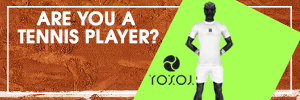

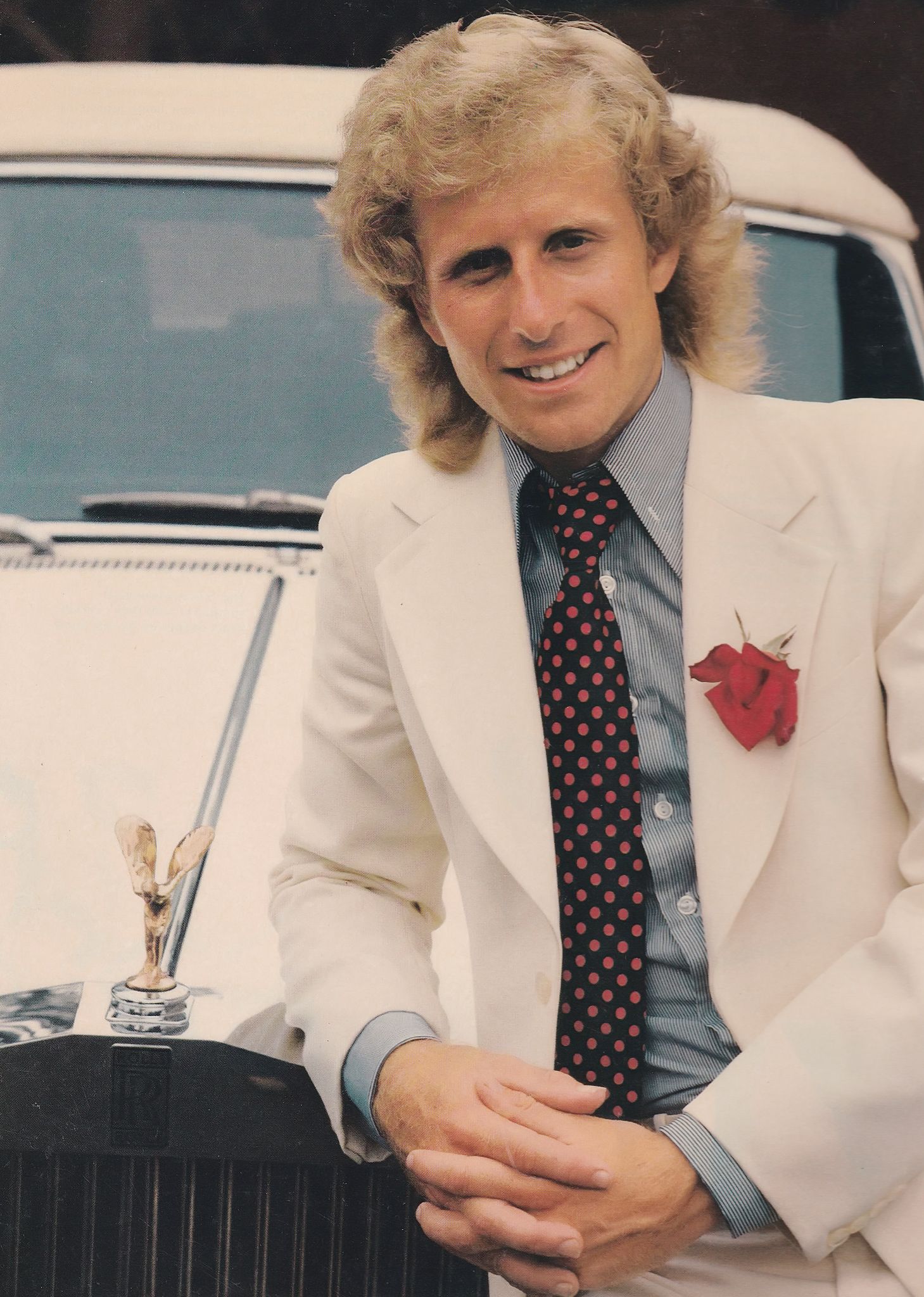
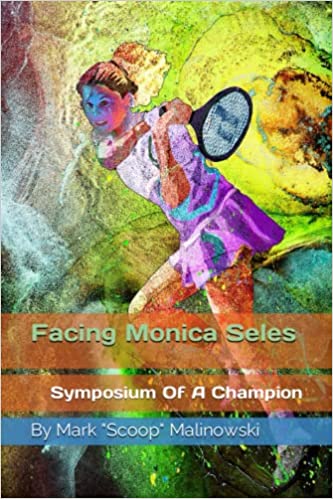
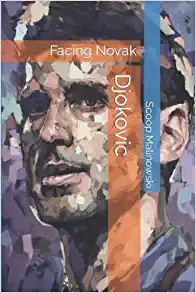
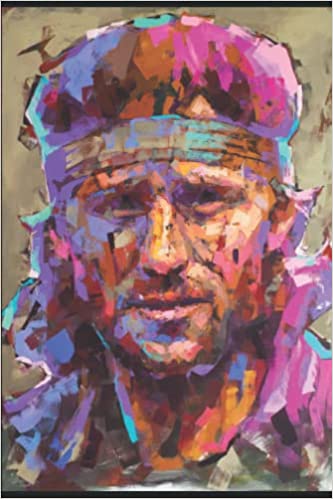
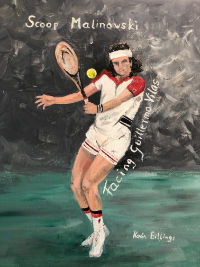
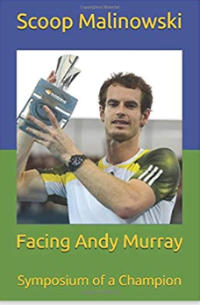
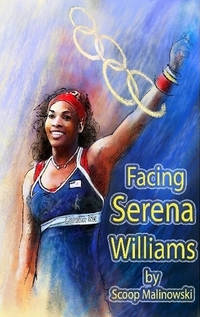
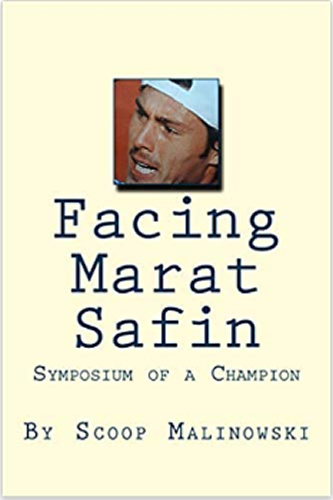
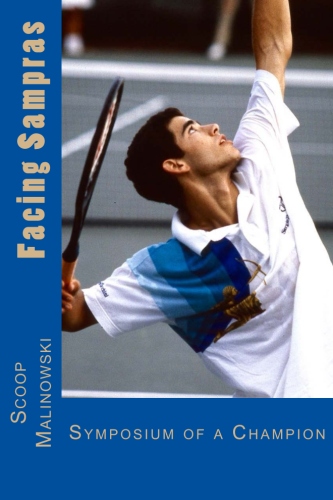
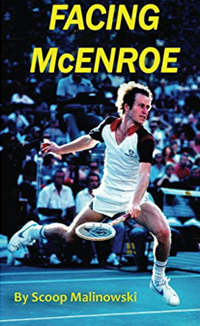
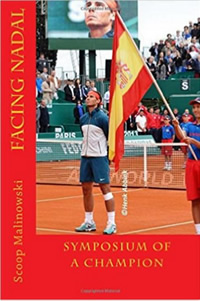
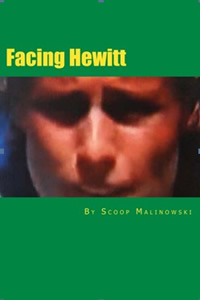
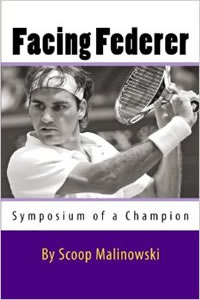
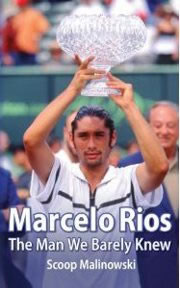
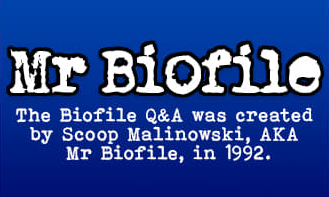
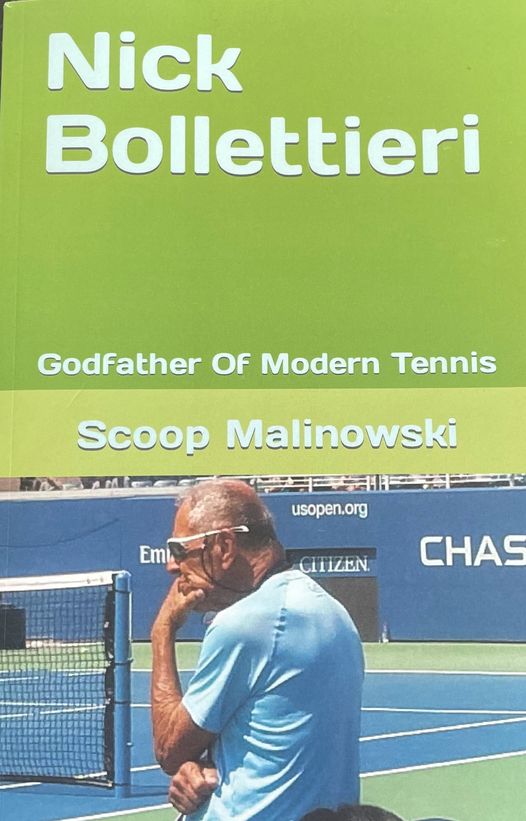

catherine · September 16, 2019 at 12:12 pm
I’m younger than BJK but she’s absolutely right about how life changed in the 60s and early 70s and I’m glad I lived through some of those years because I don’t think it could ever happen again. And the tennis world reflected that.
Very interesting time and interesting to be there and write about.
BJK did beat Evonne pretty soundly in 1975 but it was around 57 mins I think. The 29 mins was reserved for Rosie Casals in a semi W’don ’69 – 6-0 6-1. Another of her great W’don matches was her carve-up of Chris Evert.
BJ tends to talk now if her tennis were just a sideshow, that it didn’t matter very much, but that fact is if Gladys Heldman hadn’t had the contacts to bring in Virginia Slims and Billie Jean wasn’t the best and most visible player around the VS tour would never have got off the ground.
I like how BJ won 3 W’dons in the 60s and 3 in the 70s.
Crossed a generation divide.
Hartt · September 16, 2019 at 2:30 pm
Thanks, Scoop. I always enjoy hearing what Billie Jean King has to say. I love how excited she was by your first tennis memory question, because no one had ever asked her that. It can’t be easy to ask her something she’d never been asked before!